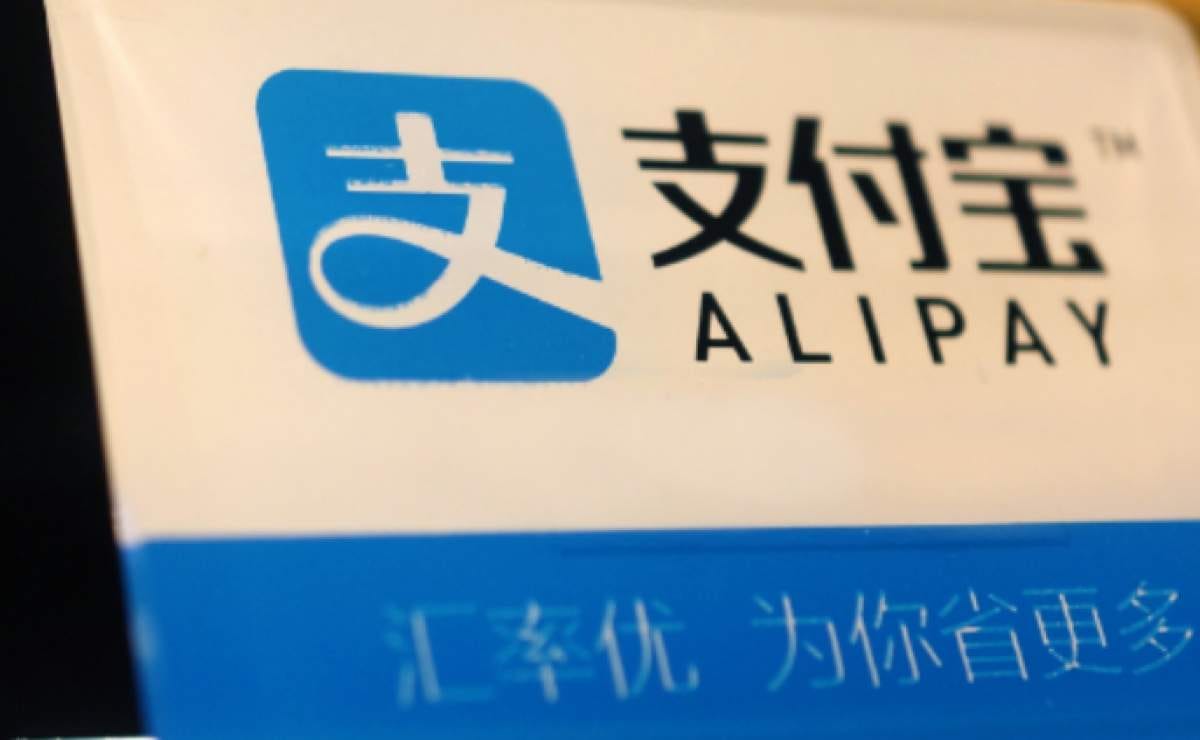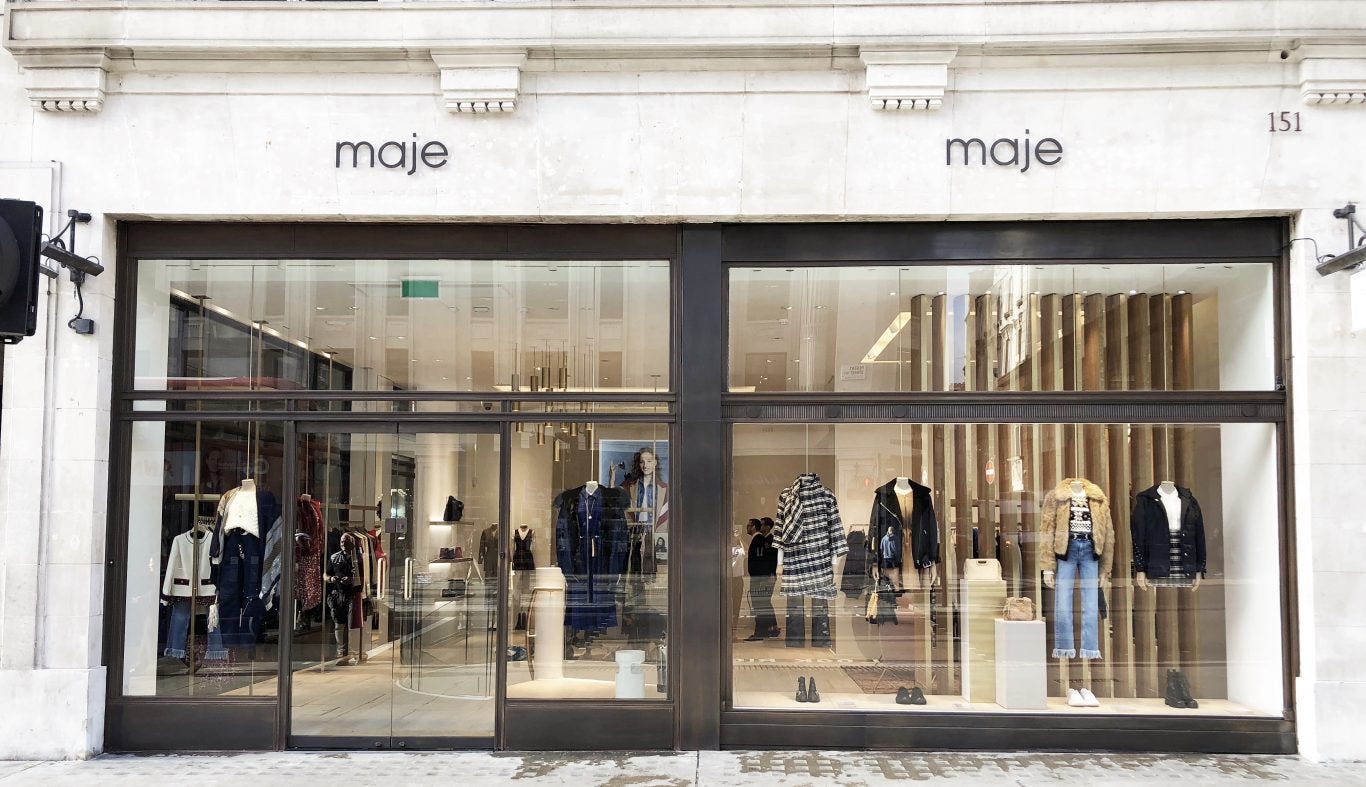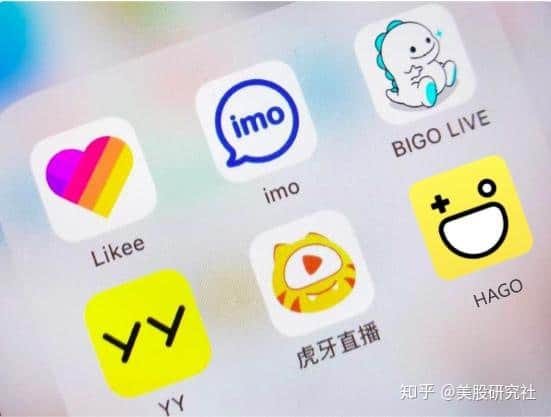Future Tech China: What Ant Group Is Really After
Plus: Singles' Day on steroids, Sandro and Maje look east, and the Lipstick King's musical debut.
The Content Commerce Insider newsletter highlights how brands create content to drive revenue. If you have received our newsletter from a friend or colleague, we hope you will subscribe as well and follow us on LinkedIn and Instagram.

In China, almost all of the major tech players have developed their own payment systems, including Tencent, Alibaba, Meituan, Didi, Baidu, and Xiaomi. Early on, they realized the power of building a financial infrastructure as a critical part of their ecosystems that allows them to mine the gold of the digital era: DATA.
When Alibaba first established Ant Financial back in 2004, its employees had to manually fill in transfer orders from Taobao buyers and sellers to bank accounts. Instead of waiting for a fintech system to be built out and scaled from scratch, Jack Ma insisted on building trust before scale. This focus on urgency set the stage for what is now known as Ant Group to make history with the biggest IPO ever — a $34 billion dual offering in Hong Kong and Shanghai.
Although a separate entity, Ant Group has become a backbone for Alibaba. Its initial purpose was to enable a trustworthy system for payments on Taobao, Alibaba's flagship domestic e-commerce platform. Initially, buyers and sellers on Taobao had to first pay sellers when placing orders online, offering little trust for parties in a transaction.
So Ant Financial was born as a system with an escrow mechanism. The escrow function means that a buyer doesn’t pay a seller directly. Instead, it pays Ant first, and once the buyer receives the merchandise, Ant releases the funds to the seller. From there Ant was built out into a full-service financial platform, expanding to offer products such as loans and insurance, and was eventually spun off from Alibaba's main business in 2011.
Fintech Is the Backbone of the Chinese Tech Ecosystem
There's a reason Amazon doesn't accept PayPal, the West's most popular fintech solution. It knows just how much power that would give away to PayPal.
Instead, the e-commerce giant launched Amazon Pay in 2006. While the service is active across the United States, Europe, and India, it has gained little traction, with only 33 million users outside of Amazon.com (mostly in the U.S. and Europe).
Alipay and WeChat Wallet's strengths lie in their access to user data from outside their own ecosystems. When a user buys a bottle of water at the Shanghai airport and pays with Alipay, Ant knows this. Amazon Pay would not.
So, Amazon opted instead to roll out its own credit card system, though the company doesn't publicly release information about the percentage of transactions involving credit cards. Still, given the limited supply of alternatives, it’s safe to assume that most of its sales are made with credit and debit cards, and that poses a problem.
Over the past decade or so, China has been able to leapfrog over some stages of e-commerce development seen in the West, heading straight for the latest available technology. China's skipping over credit cards aside, it's interesting to see how much more flexibility the country’s fintech institutions offer.
Take, for instance, the proclivity of Chinese tech giants to foster mass adoption through subsidies. What if Facebook or Google wanted to adopt a similar strategy? Where would they even begin? By sending money to a credit card? The fintech infrastructure is utterly missing in these contexts for social media or e-commerce. And so is the financial data.
It's All About Data
The West struggles not only because credit cards are so profoundly embedded in commerce, but because of the massive resistance from existing financial services firms and regulators. For example, the co-branded credit card from Apple and Goldman Sachs restricts the consumer information that Apple obtains from transactions to merchant, date, and dollar amounts. Alipay amasses far more data from the course of the purchasing journey since it owns the full stack: from discovery on the platform to checkout to delivery. Outside of its platform, it also draws much more information on payment transactions, from which it can garner valuable insights into user behavior, which can then be shared with brands and manufacturers looking to reach its consumers more effectively and efficiently.
Tech companies don't need to make money on payments, but they need (read: want) the data on consumer habits and purchasing decisions. And when you know what someone spends money on, you basically know everything about them.
Resources:
- by Tanya Van Gastel
Mentioned in today’s newsletter: Alibaba, Amazon, Apple, Baidu, Claudie Pierlot, Didi, Goldman Sachs, Google, iQiyi, JD.com, Joyy, Maje, Meituan, Pinduoduo, Sandro, Suning, Tencent, Tmall, Xiaomi, YY.

E-Commerce Platforms Vie To Boost Singles’ Day Shopping With TV Galas
by Ginger Ooi

The competition is heating up to promote this year’s Singles’ Day sales with splashy televised galas on major satellite TV networks. JD.com, which was reportedly preparing a livestreamed show for the evening of November 10 while its competitors went for TV audiences, has announced that its “Live Super Night” (京东11.11直播超级夜) will be broadcast on Jiangsu Satellite TV and streamed on iQiyi, as well as via JD Live.
The event will be held at Beijing’s Wukesong Arena (aka Cadillac Center), and feature more than 30 celebrities, including Wang Yuan and the newly formed girl group The9 from iQiyi’s “Youth With You” (青春有你) competition show. Viewers will be able to win prizes, obtain discounts, and collect points that can be redeemed for RMB 100 million ($15 million) in cash that will be given away during the broadcast.
JD.com is also putting its Singles’ Day campaign in the spotlight through its title sponsorship of Mango TV’s new show “Lady Land” (姐姐的爱乐之程), a follow-up to its groundbreaking “older” women’s idol group competition, “Sisters Who Make Waves” (乘风破浪的姐姐, previously on CCI). “Lady Land” sees the winners, formed into a new band called “Priceless Sisters,” recording their debut album and preparing to go on tour. JD.com’s sponsorship of the show goes beyond just background signage and props to include more active promotion of its Singles’ Day activities.
Other major e-commerce-driven shows in the lineup for the coming weeks:
Tmall’s “Global Shopping Festival 2020” (天猫双11开幕直播盛典) airs on October 31 on Hunan Satellite TV to kick off an additional three days of big sales from November 1-3. Tmall plans to link together 18 livestreaming rooms for the event, so that audiences can interact with each as they please. Confirmed guests include Jackie Chan, Wang Yibo, Huang Zitao, and actress-turned-livestreaming star Liu Tao.
Also on October 31, retailer Suning will host the “Double 11 Super Show” (双十一超级秀) on Zhejiang Satellite TV, and the event will also stream via Douyin, Weibo, Taobao Live, and Suning Live, with interactive games that promise cash giveaways, prizes, and chances to win Huawei products for just RMB 1 (15 cents).
Another Tmall extravaganza, the “Double 11 Carnival Night” (天猫双11狂欢夜) will air on the evening of November 10, broadcasting on Zhejiang Satellite TV, Dragon TV, and Youku, with more than 100 stars including Hua Chenyu, G.E.M., and Meng Meiqi (though no global names like Taylor Swift this year). It will capitalize on the one yuan trend with opportunities for viewers to buy goods for just RMB 1 scattered throughout the night.
The night of November 10 will also see Pinduoduo’s gala, the “11.11 Super Pin Night” (拼多多11·11超拼夜), broadcast on Hunan Satellite TV, and what the lower-priced e-commerce retailer may lack in star power it will make up with financial incentives. Pinduoduo has announced plans for RMB 1 billion ($148 million) in cash giveaways to viewers through red envelopes (hongbao), along with subsidies worth RMB 10 billion ($1.5 billion), and a cash gift of RMB 9.9 ($1.50) for every new user.
So who will emerge as the big winner? Stay tuned.

To continue to provide the best possible editorial experience, CCI has created our first subscriber survey. We appreciate you sharing your opinion and helping us improve!
The survey is anonymous and should take less than 10 minutes. All answers are used for internal CCI research purposes only and will not be shared with any third parties.
CCI Take: 2020 Is the Year for Affordable Luxury in China
by Avery Booker

Populated by a wide range of Western, Japanese, and South Korean brands, China’s affordable luxury market has only heated up in 2020 as brands jostle for attention. With international travel (and the shopping trips it entails) largely put on hold for many, and more of daily life moving onto the cloud, affordable luxury brands are investing in getting in front of Chinese customers via their favorite platforms and programming.
The active adoption of key content-commerce trends such as e-commerce livestreaming and brand collaborations has been particularly useful for “internet famous” (wanghong) domestic brands including Perfect Diary and Hey Tea, and has also been crucial for premium brands at the more affordable end of the pricing spectrum.
One Chinese-owned company hoping to tap growing demand for affordable luxury is SMCP, parent of brands Sandro, Maje, and Claudie Pierlot. This week, SMCP announced plans to boost spending on advertising and store openings in China, adding that it expects to open around 20 stores there per year from 2021 to 2025 (accounting for half of its total global openings.)
Read the full article on Content Commerce Insider
Brand Film Pick: E-Commerce Livestreaming’s New Anthem
While e-commerce livestreamer Viya has long been unchallenged as the top seller on Taobao Live, where she hawks everything from instant noodles to rocket launches, runner-up Li Jiaqi has drawn more acclaim as an entertainer, leveraging the fame associated with his persona into must-have brand collaborations and appearances on TV shows and in film.
Now Li — known as the “lipstick king” for his rapid-fire ability to try on and deliver a verdict on dozens (or even hundreds) of shades in one go — is making a move into new territory with music. He recently teamed up with his cousin, the rapper Lexie Liu, on “Buy It” (买它), a paean to one of Li’s signature phrases. The song reworks Liu’s hit single “Manta” by adding humorous lyrics about the livestream shopping experience and more of Li’s key slogans (“OMG,” “Amazing,” “All the ladies,” etc.) with a video that features Li in a lipstick-themed shirt alongside Liu and Never, one of his playful bichon frises, and a cast of female shoppers aboard a bus filled with stylish merchandise.
The video was released just as Chinese e-commerce platforms started revving up for the massive online shopping and content-commerce extravaganza known as Singles’ Day, which now stretches beyond the original November 11 date into several weeks worth of presales activity, and Li’s “Buy It” may well serve as the theme song for China’s digitally-driven consumer recovery in the year 2020.
News From China

Aiming to gain ground on rivals in the livestreaming space, Baidu is reportedly nearing a deal to acquire YY, the Chinese livestreaming operations of the Nasdaq-listed Joyy, which is focusing more on its international business (platforms such as Likee and Bigo).
The deal, valued at $3 to $4 billion, could give Baidu a much-needed boost to compete with Bytedance, which has seen its revenues soar on the rising popularity of Douyin in China, while Baidu’s fortunes have fallen as advertisers have soured on its key offering, search.
YY had around 41 million monthly active users in China in the second quarter of the year, a small fraction of Douyin’s reported 600 million, but perhaps enough to create more traction for Baidu’s recent livestreaming initiatives.
Meanwhile, the video space is getting increasingly crowded, with Bytedance’s Xigua Video, Q&A platform Zhihu, and WeChat all increasing their emphasis on developing more high-quality video content that can attract and retain users.
Earlier this month, WeChat Channels began offering upgraded features including livestreaming, longer videos of up to 30 minutes, and e-commerce integration, aiming to shift its user base from “middle-aged uncles” to the Gen Z and millennial fans of rivals Douyin and Kuaishou.
Zhihu, which is often described as a Chinese Quora, created a video portal on its homepage and has launched a campaign to offer incentives to users who post video, with opportunities for traffic and monetization.
Meanwhile, Xigua Video is spending big with its plan to offer RMB 2 billion ($300 million) to support the creation of high-quality video, with an emphasis on medium-length content in a horizontal format that runs from one to 30 minutes.
Bilibili has an enviable position as a leader in video that appeals to a youthful and highly engaged audience, but it must also develop new ways of monetizing its content offerings.
Its e-commerce platform is focused on derivative products that build on its core ACG (Anime, Comics, and Games) IP, and has seen strong growth since it was established in 2017. Gross merchandise value (GMV) has grown by more than 100% annually and surpassed RMB 1 billion ($150 million) in 2019, and the RMB 1 billion mark has already been surpassed this year.
Wang Yibo is the undisputed brand favorite of 2020 among male celebrities. The young idol has racked up an impressive 23 new endorsement deals over the past year, from Nike to Swarovski to Didi, bringing his total past 30.
Trailing Wang are Deng Lun (20 deals since 2019) and Jackson Yee (19). In terms of brand categories, beauty and personal care leads for more than a third of all deals with male stars (35%), followed by food and beverage (22%).
News in English
Bytedance is beating out Tencent in engaging users with its apps: According to a recent survey, Douyin sees users spend an average of 72.9 minutes a day on the app, while news aggregator Jinri Toutiao has an average usage of 73.4 minutes, compared with just 60.6 for WeChat. SCMP
Chinese authorities are launching a new crackdown on illegal e-commerce activities that will last through December, with a focus on areas such as counterfeits and unfair competition, and livestreaming practices will also be scrutinized. Reuters
Luxury brands are showing a greater willingness to get on Chinese social media, with 60% of brands surveyed using Xiaohongshu and 49% on Douyin. Garnter
As the Singles’ Day presales are heating up, two-thirds of Chinese consumers say they will increase spending on domestic brands this year, while 57% said they would reduce shopping for American products. CNBC
BMW has entered into a strategic partnership with Alibaba to boost the automaker’s digitalization in China, which will see the two sides cooperating on branding, marketing, services, information technology, and more. China Internet Watch
Universal Music Group’s Bravado division, which focuses on fan merchandise and brand management, has opened an official flagship store on Tmall, which is launching with products tied to Taylor Swift’s “Folklore” as it is released in China. Alizila
The animated musical “Over the Moon,” a co-production between Netflix, Pearl Studios (formerly known as Oriental DreamWorks) and Sony Pictures ImageWorks, became the most-streamed release on Netflix in the United States last weekend. Radii
Tencent Pictures announced a slate of 43 film and TV projects, with a major focus on content for international audiences, despite the ongoing pall over the global box office. Variety
We’ve Got China Covered
China Film Insider: Tencent’s Ambitious Plans to Create Its Own “Content Universe”
Jing Daily: Every Second Counts: The Race for China’s Smartphone Crown
Jing Culture & Commerce: Louvre Joins Forces With Alibaba to Bring Great Works of Art to Chinese Consumers


